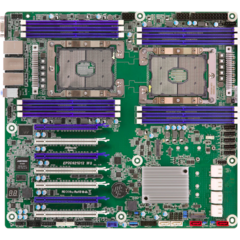Skyhawk VS Barracuda
To everyone, I replaced the Skyhawk HDD With Barracuda one and the whole issue about transfer rate being inconsistent is gone. It was a mistake buying and HDD designed to handle only a specific kind of writing (writing on parallel). Skyhawk is for DVR only and only used in monitoring cameras. It does not work properly for PC use case. The results is about over 10 times less performance...... Files that could be copied in 1 hour takes over 10 hours to accomplish. loading games takes from minutes to an hour. reading high bit rate videos smoothly is not possible. Windows OS does not write 64 files at the same time at 3Mb rate or less. This is a very specific kind of workload that does not happen on a daily use of PC... Windows itself avoid this kind of workload in order to avoid defragmentation. Skyhawk HDDs stay in a ready state in realtime to an order of writing 64 files at a time even while reading files from it, this ready state stops the HDD from performing any fast reading process in realtime. In other words the HDD does not perform at all.....
In other words Skyhawk HDDs on a PC are a nightmare. They are completely unusable and they will be better in the trash instead of inside your PC chase. I am saying this for people to avoid buying these HDDs for PC by a mistake. It is not slightly worse or 2-3 times less performance.... It is over 10 times worse and completely unusable for PC or servers.




















Create an account or sign in to comment
You need to be a member in order to leave a comment
Create an account
Sign up for a new account in our community. It's easy!
Register a new accountSign in
Already have an account? Sign in here.
Sign In Now